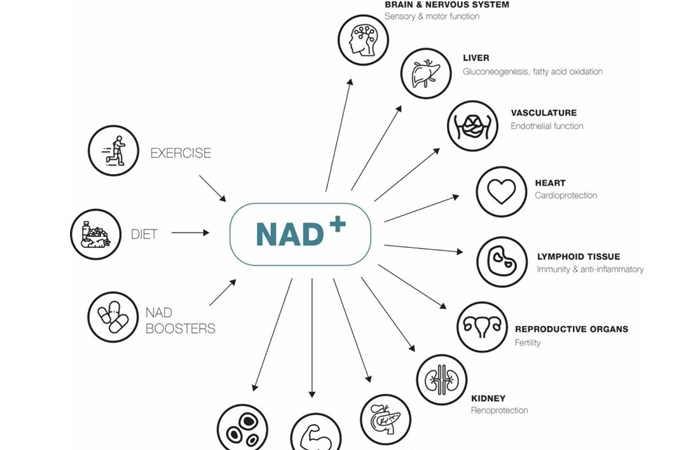Even before the pandemic, society has made it almost impossible to be away from our screens. Everything is a literal click away. Hungry? Get takeout. Bored? Put Netflix on. Need to socialize? Hop on a call. In a post-pandemic world, working and studying from home is the norm.
Table of Contents
Is working from home really as great as everyone says?
Working from home (WFH) has become the preferred setup among young people. You get to save money from your commute to work. You get to manage your schedule according to your personal plans. And for parents, you have a more present role at home. But like all things in life, there are risk factors, especially for older adults.
Aging science begs to differ
Life before the pandemic was considered stationary. It’s one that scientists and health professionals have been actively addressing through public health initiatives. WFH hasn’t helped, if anything it encourages an even more sedentary lifestyle. If we want to avoid becoming patients with chronic problems, we have to be more conscious of the biology behind aging.
Aging and aging research
Our chronological age is actually different from our biological age. Aging science studies have shown that as we grow older, the more susceptible we become to age-related diseases like heart disease and neurodegenerative disorders. If longevity is the end goal, then you need to understand what aging is and how you can control it.
Human aging basics
According to the National Institute on Aging, “[a]ging is associated with changes in dynamic biological, physiological, environmental, psychological, behavioral, and social processes.” In this case let’s focus on cell biology and what happens on a molecular level. There is a whole chain of transformations that lead up to the essential elements that manage DNA damage and overall cell health.
To briefly run through it, nicotinamide mononucleotide (NMN) is the precursor to nicotinamide adenine dinucleotide (NAD+). NAD+ is a coenzyme that is vital in producing sirtuins, something that plays a vital role in genome integrity. As you grow older, there is a decrease in NAD+ and this affects the parts and processes responsible for cellular repair and immune response. Researchers made the link: low NAD+ levels lead to all the “side effects” of aging.

If you “treat” aging, you could save yourself from ailments like dementia, Alzheimer’s disease, poor cardiovascular health, muscle degeneration, cognitive decline and more. When you have healthy habits in place (that encourage coenzyme production), you can get more out of life. Here are 5 tips to combat aging in a post-pandemic WFH setup:
Find ways to move around

Again the digital world encourages us less and less to move our bodies. But it’s long been known that our bodies are meant to be moving. Moving your body leads to better organ function and boosts your nervous system, ultimately improving overall health upon aging.
Targeting aging with exercise
Walking outside or even inside your home in between work goes a long way for your physical and mental well-being. If it’s difficult for you to commit to a workout routine, try small movement exercises before or after work. The important thing is to keep moving every day!
Fix home-cooked meals

Food delivery has evolved by leaps and bounds. Instead of regular fast food, you could get dishes more aligned with your health goals. Vegan. Vegetarian. Keto. Pescatarian. Name the diet. There is bound to be a decent selection.
But let’s go back to the data. If it’s possible, it’s best to eat a variety of foods, and there is no better way to do that than through a home-cooked meal.
Fight the aging processes through food
Making your own food is a great habit to form because it helps you have a better understanding of your current state. You’ll be able to monitor things like blood sugar and combat aging-related diseases in your day-to-day lives.
Take supplements

While food is the best way to get nutrition, we don’t always get the variety we need. Grocery and fresh produce can be expensive. For those who are looking to stay on top of things, supplements can help.
Aging science and drug development
You have your staple supplements like vitamin C, D, and B. But there are promising studies done on NMN. Nothing is concrete yet, but researchers have seen NMN’s role in longevity, with studies suggesting that NMN holds anti-tumor properties, combats inflammation, and extends the lifespan of mice. While there are NMN supplements available, human clinical trials are needed to assess human translatability. That being said, if you want to keep your eye on NMN research, you could track developments here: NMN
Step away from your screen for a few minutes

Ever heard of screen detox? It’s when you intentionally separate yourself from personal devices for long periods of time. Recent studies have pointed out that taking a few minutes (even just 5) off of your screen does help, especially for sleep and for your daily awareness. You could visit local nature parks and participate in upcoming events that encourage activity.
Human lifespan is a battle we have to keep actively fighting
People have tried all kinds of treatments to delay death and defy nature. While researchers are hard at work with mice, animal studies, and all the clinical aspects, you can manage the aging symptoms in the meantime with these steps.

